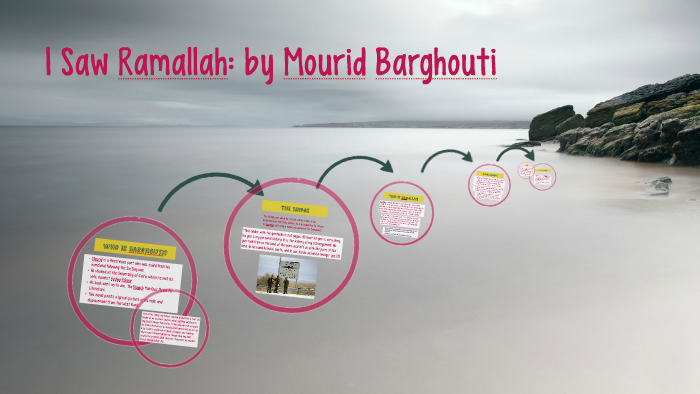


At 2.15pm seven years later, my brother Alaa informed me from Qatar of the death of Mounif in Paris. A simple paragraph tells how family tragedies play themselves out over long-distance phone lines: 'At 1.30am Mounif informed me from Qatar of the death of my father in Amman. He calls the Palestinians a 'telephonic people' living their lives through disembodied voices across the diaspora. I Saw Ramallah is full of these little tales of personal grief that do more to raise sympathy for the Palestinian cause than a thousand suicide bombs. Barghouti tells this as a joke, but the effect is heartbreaking. When they first meet, Tamim calls his father 'Uncle' and when he points out that he should really be called 'Daddy', the little boy starts to call him 'Uncle Daddy'.

The sensitive translation by novelist Ahdaf Soueif captures Barghouti's often abstract way of expressing himself without making him sound obscure or pretentious.īarghouti tells of first seeing Tamim in Budapest following his second exile, when the little boy is just over a year old. The story of Barghouti's life unfolds through flashbacks as he revisits family and the sites of his childhood in the village of Deir Ghassanah in the West Bank. He went back at a time of hope, long before Ariel Sharon provoked the al-Aqsa intifada and everything was turned to dust by the 'targeted assasinations' and 'suicide martyrs'. He lived in Budapest for the first 17 years of his son's life, returning for good only when his son was preparing to attend the same university.īarghouti, a celebrated Palestinian poet, won the Naguib Mahfouz Medal for Literature for this account of his return to Ramallah in 1996 after a 30-year absence, and it has been a bestseller in the Arab world. After falling in love and marrying an Egyptian woman, novelist Radwa Ashour, Barghouti was deported as a suspected political activist just after the birth of his son, Tamim.


 0 kommentar(er)
0 kommentar(er)
